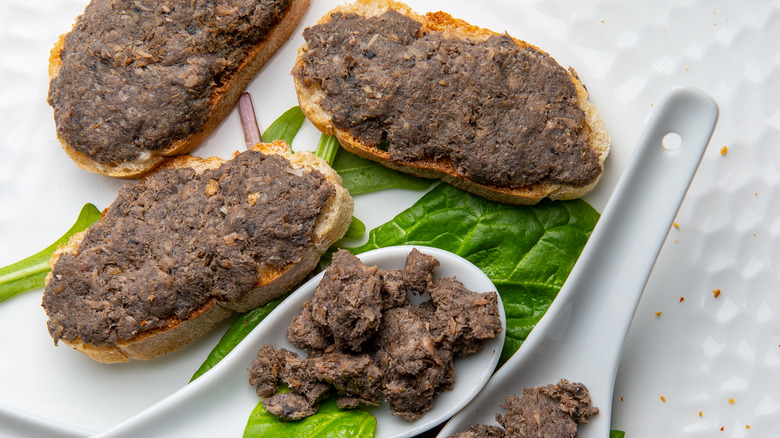The Real Reason King Charles Might Eat A Pie Made With Lampreys
An upcoming royal coronation calls for lamprey pie. But what exactly is this strange traditional dish?
Sea lampreys are parasitic fish that feed off other sea creatures using their suction cup-like mouth full of teeth, states the Great Lakes Fishery Commission. They do not have jaws or any bones at all — the site says that their skeletons are comprised entirely of cartilage. Most fish bitten by the lampreys do not survive, either as a direct cause of the bite or infection after the lamprey detaches. They are native to the Atlantic Ocean, but the parasites have also become an invasive species in the Great Lakes region.
In comes lamprey pie. This pie is traditionally baked in a thick, rising crust, in a syrup of wines and spices — and may even include lamprey blood, according to What's Cooking America. Although a parasitic fish does not exactly sound like the most appetizing meal, lamprey pie is a British tradition dating back to the Middle Ages, and its presentation is significant to the royal family.
A royal tradition
Lamprey pie was often enjoyed as a delicacy in England, and it was eaten by the royal family, according to What's Cooking America. King Henry I enjoyed the pie so much that he reportedly died after eating too many of them — though some say it was actually food poisoning. The city of Gloucester upheld a tradition of presenting the royal family with a pie each Christmas season, though this practice was stopped in 1836, due to the high cost of the lampreys. The only exception to this was for coronations and jubilee celebrations.
Today, Gloucester imported lampreys from the Great Lakes, per What's Cooking America. USA Today reports that the lampreys were imported from Canada to be baked into a pie, though the tradition may be purely ceremonial — it is unclear if the pie is actually eaten by the late Queen Elizabeth II. They were first imported in 2002, then again in 2012 and 2017. Although there is no date set for King Charles' coronation ceremony, Gloucester will likely continue the tradition, and the Great Lakes Fishery Commission will be ready to provide the fish.

